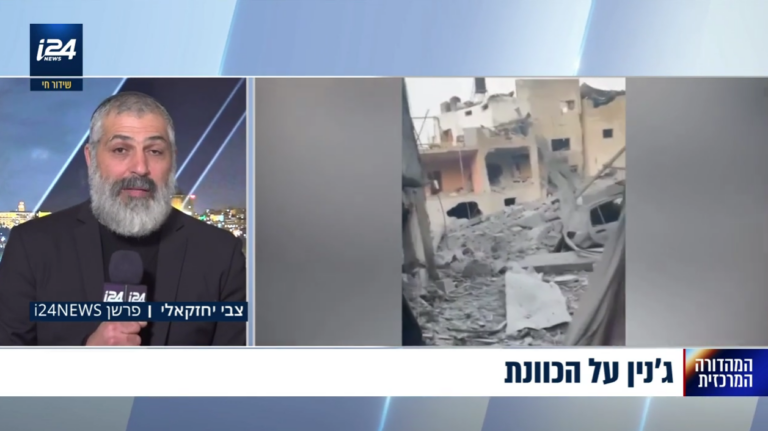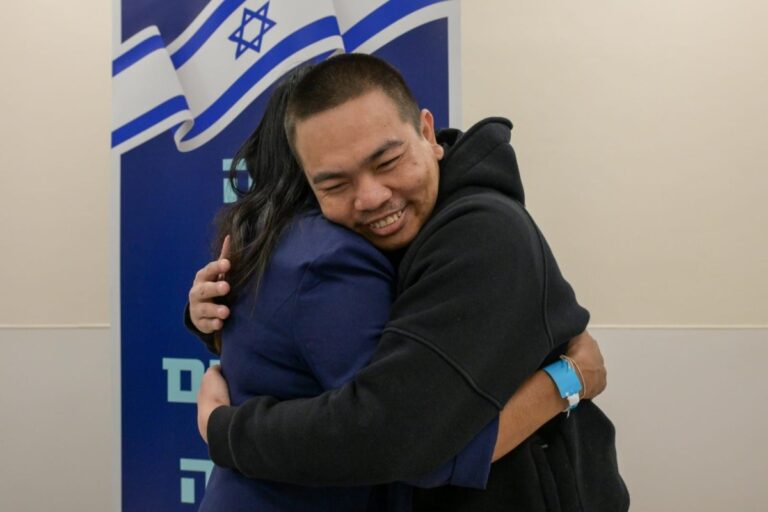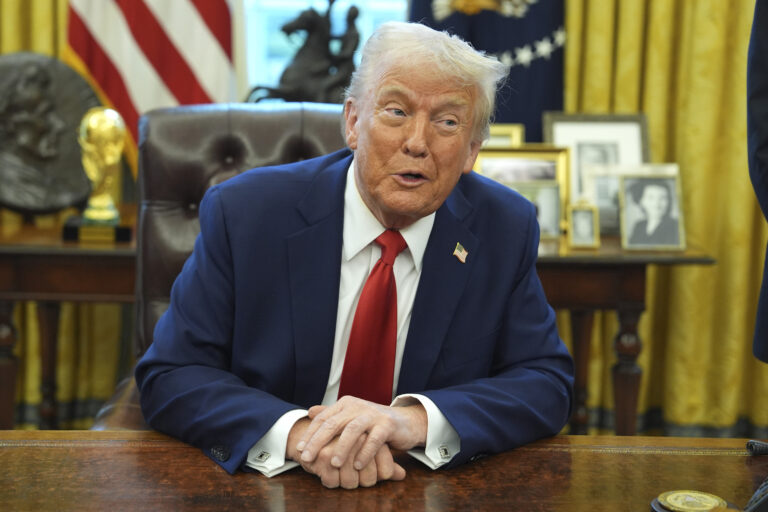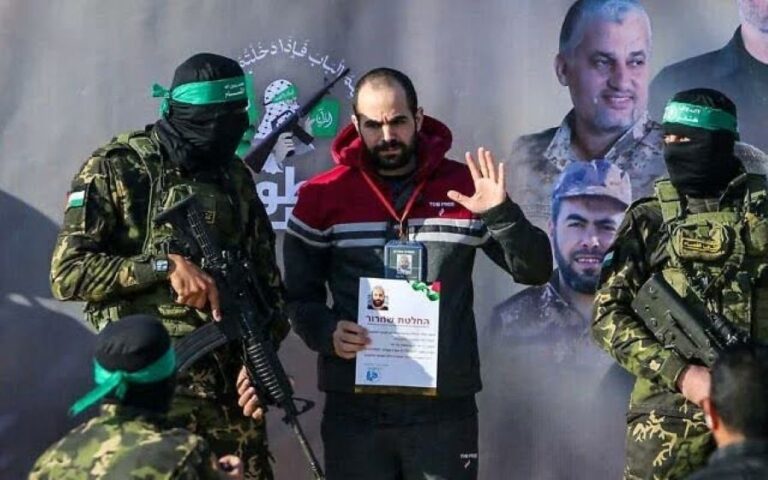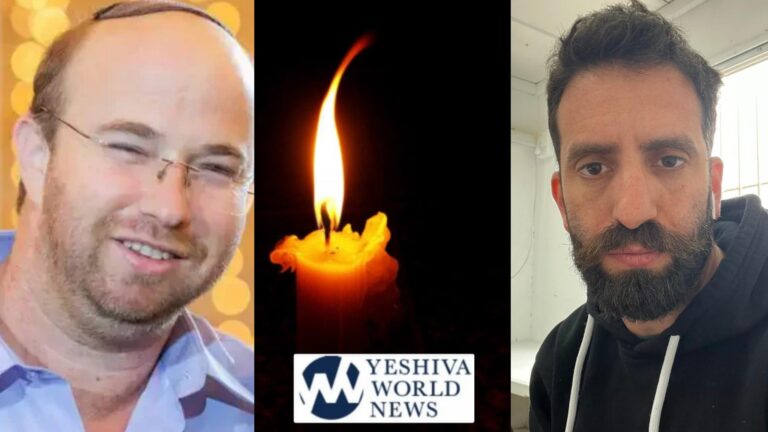By Yitzchok Hisiger [Yated Neeman]
Rabbonim and community representatives met with officials in the New York State capital on Monday afternoon, coming to an important agreement regarding bris milah and metzitzah b�peh.
The meeting and the signing of the agreement were a culmination of months of behind-the-scenes shtadlanus to iron out the details of a State Circumcision Protocol.
In attendance at the gathering on the 14th floor of the Corning Tower in Albany were Rav Avrohom Shlomo Blum of Kashau; Rav Isaac Eichenstein, the Galanter Rov; Rav Shraga Feivel Zimmerman, Rov of K�hal Bnei Ashkenaz of Monsey; Rav Avrohom Diament, Rov of K�hal Zichron Be�er of Monsey; Rabbi Dovid Niederman of the United Jewish Organizations of Williamsburg, and Mr. Yerachmiel Simins. Rav Feivel Cohen addressed the meeting via live hookup from Eretz Yisroel.
Also present were representatives and dayanim of various kehillos including Satmar, Vien, Skver, Pupa, Bobov, Lubavitch, Kashau, Nitra and Tzeilim.
Officials at the signing included Antonia C. Novello, M. D., Commissioner of the New York State Department of Health; Dennis P. Whalen, Executive Deputy Commissioner of the New York State Department of Health; and Jean Fascelle, Rockland County Health Commissioner. Commissioner Lipsman of Westchester, Commissioner Hudson of Orange and Commissioner Ryan of Sullivan joined the meeting via telephone.
The agreement reached with the State Health Department vis-? -vis bris milah and metzitzah b�peh was negotiated during the last half year by Rav Feivel Cohen, Rav Avrohom Shlomo Blum, Rav Hillel David, Rabbi Dovid Niederman, Rav Isaac Eichenstein, Rav Hillel Weinberger, Dayan of Nitra-Mount Kisco; Rav Zecharya Menachem Zilber; Rosh Beis Din, Hisachdus Harabbonim, Mr. Yerachmiel Simins and other community activists. Also instrumental in arranging the meetings with the State Health Department were Mr. Avigdor Ostreicher, and Rabbi and Mrs. Sternberg, noted askonim of the Skverer kehillah. For many months, these representatives of the frum community met and spoke with State officials to formulate a document that would address all health issues relating to bris milah.
The program, on Monday, began with comments by Rav Feivel Cohen, via telephone from Eretz Yisroel. He mentioned that bris milah is the first mitzvah every Jew fulfills and what a tremendous zechus it is to protect it.
His remarks were followed by passionate comments from Commissioner Novello who spoke about the fact that religious freedom and health cannot conflict. She said that the meeting and the signing of the protocol are a tribute to the rabbonim who realized that and worked out an agreement with the State Health Department. Dr. Novello related that there were nearly five months of meetings and specifically mentioned the devotion and efforts of Rav Feivel Cohen and Rav Avrohom Shlomo Blum who spearheaded the efforts, sometimes attending meetings in Albany late into the night.
In May, Commissioner Novello related in a letter that the meetings were extremely helpful in her gaining an understanding of the importance of metzitzah b�peh, and finding a way for the Department of Health to permit the practice of metzitzah b�peh to continue while still meeting its responsibility to protect the public health.
Jean Fascelle, Rockland County Health Commissioner, then spoke, followed by comments from the Health Commissioners of Westchester, Orange and Sullivan Counties via telephone.
The overall theme of the speakers was that when there is sincerity and cooperation, people can work together and resolve any situation. In this case, the rabbonim and health officials succeeded in coming to an agreement because of the mutual respect that exists between them.
Mr. Yerachmiel Simins spoke next, eloquently addressing the State Health Commissioner. ? ? ? ? ? ? ? �It wasn�t until we met with you, Commissioner Novello, that a real process of dialogue began.? You saw that our two sides had more in common than in conflict – a common unwavering dedication to both the sanctity of life and the sacredness of religious beliefs.
�We heard you,� continued Mr. Simins, �when you said repeatedly that you were not interested in regulating religious practice or prohibiting metzitzah b�peh, and you heard us when we said that public health is of paramount importance to us down to the life of every individual baby.? Again we say that no one cares more about the health of our children than we do.�
Mr. Simins mentioned that the State Health Department consulted with leading medical experts – experts in epidemiology, infectious disease, and neonatal herpes – including advisors from the National Institutes of Health and the world-renowned Dr. Richard J. Whitley, Professor of Pediatrics, Microbiology, Medicine at the University of Alabama/Birmingham, and Director, Division of Pediatric Infectious Diseases of the University of Alabama, to understand the truth of any perceived risk and to find a fair and effective way of dealing with this issue.
Professor Whitey, the recognized foremost authority on neonatal herpes, graciously met with the rabbinic committee numerous times, both in his offices at the University of Alabama and by telephone, to discuss the issues relating to metzitzah b�peh and those particular cases New York City had been pursuing.
�Your unending patience, persistence and sensitivity,� Mr. Simins told Commissioner Novello, �fostered extraordinary cooperation between the religious and governmental spheres. You led us all to see that our respective interests did not compete; they were compatible, so that resentment gave way to reconciliation and, even more, resolution.�
The Galanter Rov, Rav Isaac Eichenstein, spoke next. Then, the State Deputy Secretary of Health, who represented Governor George Pataki at the meeting, commented briefly and said that the Governor apologized that he could not personally attend but that he extends his warm wishes and blessings to all.
The Circumcision Protocol was then signed by Rav Feivel Cohen (via fax from Eretz Yisroel), Rav Hillel David (via proxy), Rav Shraga Feivel Zimmerman, Rav Avrohom Diament, as well as the dayanim of Satmar, Vien, Skver, Pupa, Bobov, Lubavitch, Kashau, Nitra and Tzeilim.
Representing the State, the agreement was signed by Commissioner Novello, Executive Deputy Commissioner Whalen, Donald P. Berens, Esq. and Dr. Perry Smith.
Glatt kosher refreshments were served in an adjacent room.
The atmosphere was spirited and uplifting, with both sides recognizing the meaning and significance of what was achieved with the establishment of the �Novello Protocol�, as Mr. Simins referred to it in his remarks.
The agreement signed on Monday afternoon sets forth precautions to be implemented by mohalim prior to performing bris milah and establishes a clear system to be employed in a case where an infant contracts the Herpes virus shortly after having a bris milah.
During the course of the extensive negotiations over the past months, Rav Feivel Cohen was in close contact with Rav Yosef Shalom Elyashiv for his advice and guidance.
Prior to the signing of the agreement, the protocol was professionally translated into Hebrew, and shown, by Rav Feivel Cohen, to Rav Elyashiv. Rav Elyashiv expressed his full support of the agreement and encouraged those who had worked so diligently to coordinate this important undertaking.
The agreement states that if a male infant becomes infected with the Herpes Simplex Virus (HSV) within a certain period of time following metzitzah b�peh, the New York State Health Department will conduct an investigation, without prejudging the case, which will include testing the mohel who performed the bris, as well as the father, mother and all pertinent caregivers.
If the Herpes viral DNA of the infant are identical to the mohel�s as determined by RFLP testing (the best scientific method available), the mohel may continue to perform bris milah, but will not be permitted to perform metzitzah b�peh any longer. If, however, it is established that the source of the virus is a caregiver, the mohel will be permitted to continue performing metzitzah b�peh, and the person(s) carrying the virus will be educated in regard to the necessary measures to be taken to protect the infant.
If the source of the virus cannot be positively determined, the mohel may continue performing metzitzah b�peh providing he takes an anti-viral drug.
It is important to note that the agreement in no way presupposes that HSV is in any way related to metzitzah b�peh.? In fact, such a link has never been proven.? However, due to the ongoing speculation by Health Departments that the virus is somehow connected to the practice of metzitzah b�peh, the rabbonim felt that it was prudent, and necessary, to work out an agreement that would satisfy the State Health Department, without jeopardizing any aspect of bris milah as it has been performed for thousands of years.
Mr. Simins told the Yated that the rabbonim and askonim have been continually guided by gedolei Eretz Yisroel. Specifically on the issue of working with the State in establishing guidelines for metzitzah to counter aggressive action based on speculative allegations, Rav Elyashiv and Rav Shmuel Wosner both ruled that in this instance it was to be done to save bris milah.
The agreement with the State Health Department is significant, because in the past, if an infant became infected with HSV shortly after having metzitzah b�peh, the mohel was automatically assumed to be the source of the virus, without having DNA testing done, and the mohel was prohibited from performing metzitzah b�peh. Under the current arrangement, only if there is DNA linkage that the mohel is the source of the virus, will he be forbidden from continuing to perform metzitzah b�peh.
BRIS MILAH AND GOVERNMENT INTERVENTION
The matter of bris milah, metzitzah b�peh and governmental involvement in the practice took center stage over a year and a half ago, when a restraining order was placed on a world renowned mohel, Rabbi Yitzchok Fischer, preventing him from performing metzitzah b�peh, after a set of twins and another baby were found to have contracted HSV.
It has since been established that 1. metzitzah b�peh was not performed on one of the infants, and 2. none of the primary caregivers, in either case, were tested.
In fact, in response to an inquiry by Rav Elyashiv, Rav Feivel Cohen ascertained that the mohel has since performed 250 brisos with metzitzah b�peh (outside of NYC) safely.
The restraining order placed on the mohel by the State Health Department was later rescinded and the restraining order placed on the mohel by the Rockland County Health Department was also subsequently removed.
Finally, the restraining order placed on the mohel by the New York City Health Department, led by Commissioner Thomas Freiden, was removed at the behest of Mayor Michael Bloomberg, who said that the investigation into the respected mohel would be adjudicated by a rabbinical board, the Central Rabbinical Congress of the United States and Canada (Hisachdus Harabbonim), and should not be legislated by any government authority.
NYC Commissioner Freiden was invited by State Health Commissioner Novello to participate in the meeting with State officials in Albany on Monday. Frieden did not attend but sent two Health Department observers in his stead.
The City Health Department has not yet agreed to the State Circumcision Protocol, which was agreed to by all of the other 57 counties in the State of New York, but hopefully will consider doing so and eventually sign on to this landmark agreement, which allows the performance of bris milah and metzitzah b�peh to continue unhindered, while insuring the health of the residents of New York.




